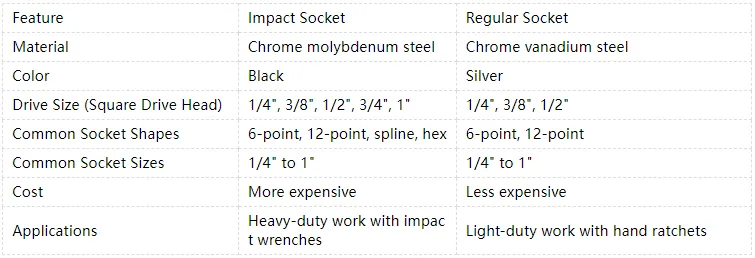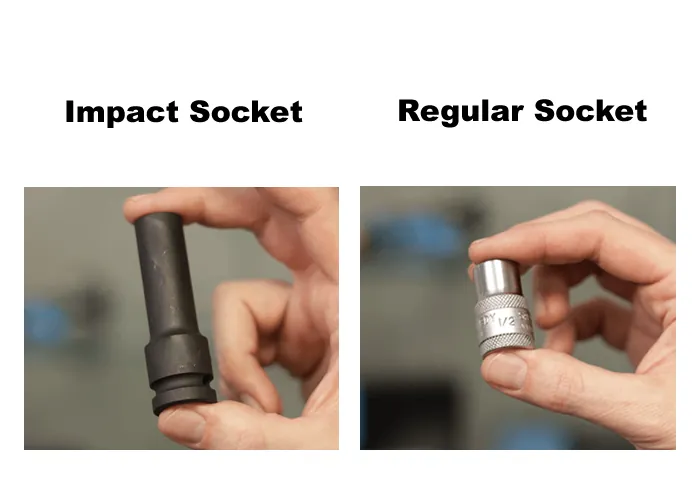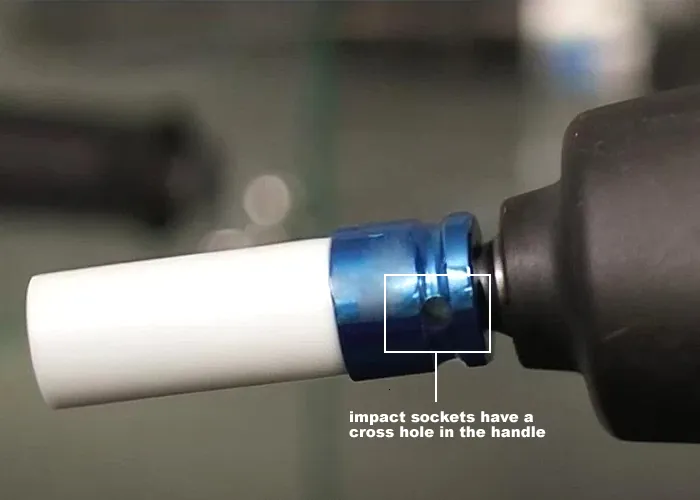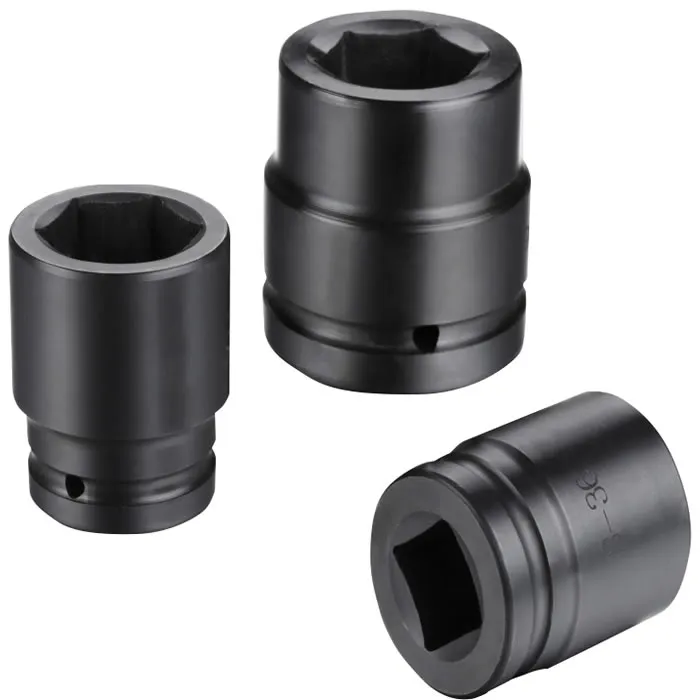Impact Socket vs. Regular Socket: Which One Should You Use
Introduction
Sockets are essential tools for fastening and loosening nuts and bolts. They come in various types, each designed for specific applications.
Two common types of sockets are impact sockets and regular sockets. While they may look similar, they have distinct differences in terms of design, function, and application.
Types of Regular Sockets
Socket wrench: A socket wrench is a tool that consists of a handle and a socket. The socket is attached to the handle and fits over the nut or bolt being tightened or loosened.
Torque wrench: A Torque Wrench is a specialized socket wrench that measures the amount of torque applied to a nut or bolt.
This is important for applications where precise tightening is required, such as in automotive repair or engine assembly.
Advantages and Disadvantages of impact sockets
Advantages:
durability: Impact Sockets are made from stronger materials, such as chrome molybdenum steel, to withstand the high impact forces generated by impact wrenches.
efficiency: They are designed to work with impact wrenches, which can loosen or tighten nuts and bolts much faster than manual socket wrenches.
Versatility: Impact sockets come in various sizes and drive types to accommodate different applications.
Disadvantages:
Cost: Impact sockets are generally more expensive than regular sockets due to their specialized design and material composition.
Weight: They are heavier than regular sockets, which can be a disadvantage in certain applications, such as overhead work.
Damage potential: Improper use of impact sockets can damage nuts and bolts.
Advantages and Disadvantages of Regular Sockets
Affordability: Regular sockets are generally less expensive than impact sockets.
Lightweight: They are lighter than impact sockets, making them easier to use in overhead or confined spaces.
Versatility: They can be used with a variety of tools, including manual socket wrenches, ratchet wrenches, and power drills.
Durability: Regular sockets may not be able to withstand the high impact forces generated by impact wrenches.
Efficiency: They are not as efficient as impact sockets when it comes to loosening or tightening large numbers of nuts and bolts.
Torque limitations: Regular sockets are not designed for applications where precise tightening is required.
Impact Socket vs. Regular Socket: Key Differences
Impact sockets feature walls that are around 50% thicker than regular hand tool sockets, making them suitable for pneumatic impact tools,
while regular sockets are best for manual hand tool use. This difference is most noticeable in the socket's corners,
where thin walls are susceptible to cracking from vibrations during use.

Constructed from chrome molybdenum steel, impact sockets offer added elasticity, bending or stretching instead of shattering under extreme force.
This flexibility reduces the risk of sudden breakage and prevents damage to the tool's anvil.
Regular sockets, typically made of chrome vanadium steel, lack this elasticity and are more prone to breaking when exposed to shock and vibration.

Another key distinction is the presence of a cross hole in the handle end of impact sockets, designed for use with a retaining pin and ring or locking pin anvil.
This feature ensures that the socket remains securely attached to the impact wrench anvil, even in high-stress situations.

Which One to Buy: Impact Socket or Regular Socket?
The choice between impact sockets and regular sockets depends on the nature of your tasks and the level of durability and torque resistance required.
For heavy-duty applications or situations where impact forces are involved, investing in impact sockets is advisable.
However, for general-purpose use or tasks that do not involve high torque or impact, regular sockets may suffice and offer a more economical option.
Conclusion
Understanding the differences between impact sockets and regular sockets is essential for making informed decisions when it comes to selecting the right tool for the job.
Whether it's the durability and strength of impact sockets or the versatility and affordability of regular sockets, each type has its advantages and applications.
By considering your specific needs and requirements, you can determine which type of socket is best suited for your tasks,
ultimately enhancing productivity and efficiency in your work.
Why Choose SAIVS™ as Your Supplier?
With 20 years of industry experience, SAIVS is a leading Chinese manufacturer of high-quality tools, offering competitive pricing and excellent customer service.We pride ourselves on exceptional quality control, extensive experience, and comprehensive after-sales service.
